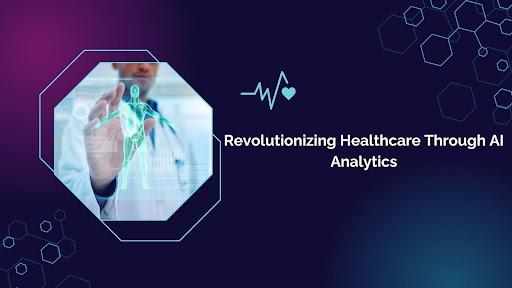Revolutionizing Healthcare Through AI Analytics
Artificial Intelligence (AI) is reshaping the healthcare landscape, driving innovation in patient care and operational workflows. Gautam Ulhas Paraba leading expert in analytics technology, explores the transformative role of AI in improving diagnostics, streamlining operations, and addressing critical challenges in healthcare analytics.
Leveraging Data for Precision in Diagnostics
AI has transformed medical diagnostics by leveraging advanced machine learning algorithms and vast datasets to achieve remarkable precision. With sensitivity rates exceeding 96% and specificity around 95%, AI models excel in disease detection, particularly in fields like radiology and pathology. These technologies minimize diagnostic errors and significantly enhance clinical decision-making. AI-powered imaging tools, for example, improve diagnostic accuracy while reducing interpretation time by nearly 40%, enabling healthcare providers to prioritize prompt and effective interventions. Beyond diagnostics, AI accelerates personalized treatment planning, integrating patient data and predictive analytics to revolutionize healthcare delivery and elevate patient outcomes to unprecedented levels.
Enhancing Real-Time Monitoring
AI plays a transformative role in real-time monitoring systems, especially in critical care settings. These systems continuously analyze millions of data points, including patient vitals, medication responses, and lab results, to predict potential complications with remarkable accuracy. By identifying early warning signs, AI reduces unexpected patient deterioration by 30%, improving safety and outcomes. Additionally, AI-driven decision support systems in intensive care units enhance decision-making speed by 37%, providing precise, data-driven insights during critical moments. This not only empowers healthcare professionals to act swiftly but also alleviates their workload, fostering more efficient and effective care in high-pressure environments.
Predictive Analytics for Proactive Care
Predictive analytics, driven by AI, is revolutionizing healthcare by enabling proactive care and improving outcomes. These systems accurately forecast hospital readmissions and adverse cardiac events with up to 85% precision, allowing timely interventions. Early detection algorithms are particularly impactful, achieving a 20% reduction in sepsis-related mortality rates by identifying at-risk patients before critical conditions arise. AI’s ability to analyze vast datasets and recognize subtle patterns empowers healthcare providers to anticipate complications, optimize resource allocation, and enhance patient safety, showcasing its transformative potential across a wide range of medical conditions and care models.
Streamlining Operational Efficiency
Beyond clinical applications, AI is transforming the operational backbone of healthcare institutions. Through predictive modeling, AI optimizes resource allocation, reducing patient wait times by 18% and improving operating room utilization by 25%. Advanced inventory systems powered by AI have cut supply chain costs by 32%, ensuring that hospitals maintain the resources they need without overspending. Additionally, workforce optimization algorithms enhance scheduling accuracy and efficiency, reducing overtime costs by 20% while maintaining optimal staff-to-patient ratios.
Safeguarding Data in a Digital Era
With the integration of AI, healthcare organizations face heightened responsibilities in protecting patient data. AI-driven security systems now monitor access patterns in real-time, swiftly detecting and mitigating unauthorized activities. These advancements reflect a broader trend in the industry, where the market for AI healthcare security solutions is projected to exceed $12 billion by 2027. Implementing robust privacy frameworks and anomaly detection mechanisms ensures that the benefits of AI are realized without compromising data integrity.
The Future of AI in Healthcare
AI’s transformative potential in healthcare is undeniable. Bridging the gap between clinical expertise and technological innovation delivers tangible benefits in diagnostics, resource management, and patient care. The integration of AI has already set new benchmarks for efficiency and accuracy in medical systems. However, addressing challenges like data security and ethical considerations remains pivotal in unlocking AI’s full potential.
In conclusion, Gautam Ulhas Parab highlights a future where AI continues to revolutionize healthcare, fostering a data-driven, patient-centric approach. This evolution promises not only enhanced medical outcomes but also a more sustainable and efficient healthcare ecosystem.


Comments are closed.